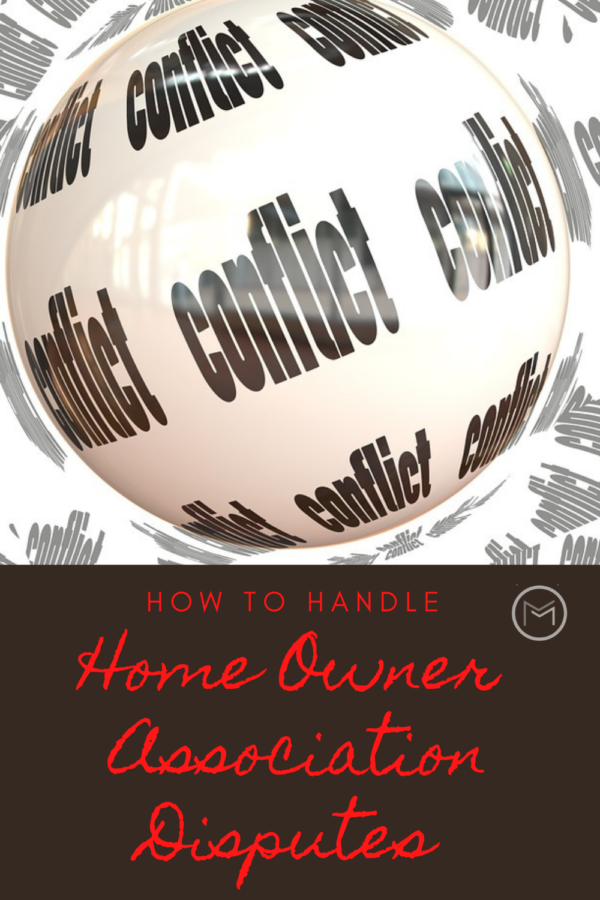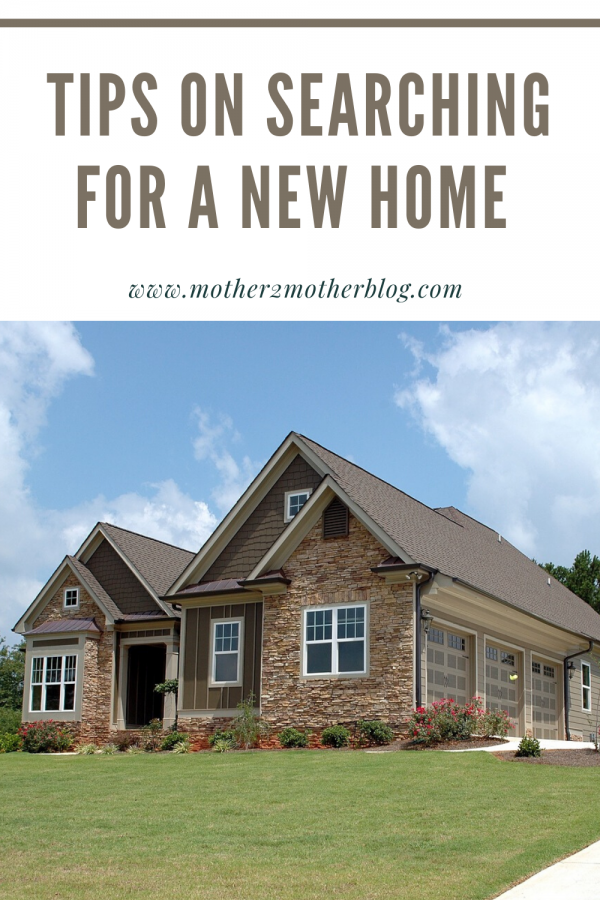Today, I’m sharing advice on how to handle homeowner association disputes. If you decided to buy a house in a neighborhood with a homeowner’s association, it is very possible that at some point you and the HOA will end up butting heads. However, using these tips will help you handle these disputes and return to living your everyday life.

Tips to handle homeowner association disputes:
Think about the Dispute
The majority of HOA disputes arise from not paying HOA fees. But, if the complaint comes from elsewhere you should carefully consider the nature of the dispute. Is it a noise complaint? And, therefore likely originating from one of your neighbors? Is it a complaint about your yard or other cosmetic complaint? This type of complaint is likely to originate from the HOA itself?
There are many different kinds of disputes that can cause your homeowner’s association to issue warnings or fines. The most common is for nonpayment of fees or nonpayment of a fine. When those aren’t the case the dispute can become less clear cut and more muddled. Thinking about the dispute and its origin will help you decide how to handle homeowner’s association disputes.
Talk to the HOA
Often your homeowner’s association will be happy to talk to you about the dispute. This can help clarify whether it was one of your neighbors who made the complaint or if it was the HOA itself that decided to take action. In addition, you can often have them clarify the steps that could be taken beyond official reprimand or fines. Talking with your HOA is one of the first things you should do. Having a conversation can easily stop the entire situation from escalating into legal action.
Learn your Rights
If talking with your homeowner’s association doesn’t result in clearing up the misunderstanding, you may have grounds for legal action. Therefore, the next step is to learn your rights under your jurisdiction. The majority of states have laws on the books that can protect homeowners if their HOA is going against their contract. Look up the laws in your state. And, if further clarification is needed seek legal help. Seeking legal help will you understand what your rights are and whether legal action is advisable for your circumstances.

File a Dispute
Essentially, a more official version of step number one is to file a dispute. This will help to establish both a paper trail and to give your HOA one last chance to resolve the issue without outside help. Your homeowner’s association will have a way to officially file a dispute. If you are lucky, they will address your concerns through the dispute. And, if you aren’t so lucky you will have a paper trail that will help in any future actions you feel necessary.
Find Legal Representation
According to the Attorney Referral Service, an HOA attorney in Los Angeles, “If you feel your HOA is applying inappropriate restrictions or failing to act in the best interest of your community, it may be time to seek legal help from a real estate attorney.” When you find the right legal representative, you will be able to make a legal claim against the HOA. Hopefully, they will make them take notice and possibly comply. If they do not comply, your lawyer will be able to guide you through the court system. This option can become expensive, but if you are in a dispute with your homeowner’s association that involves repeated or expensive fines it can be worth the money.
If you are in the middle of a dispute with your homeowner’s association, the bureaucratic process can be stressful and unclear. If you follow these tips, however, you should be able to resolve your dispute with the HOA satisfactorily and with a minimum of fuss.









